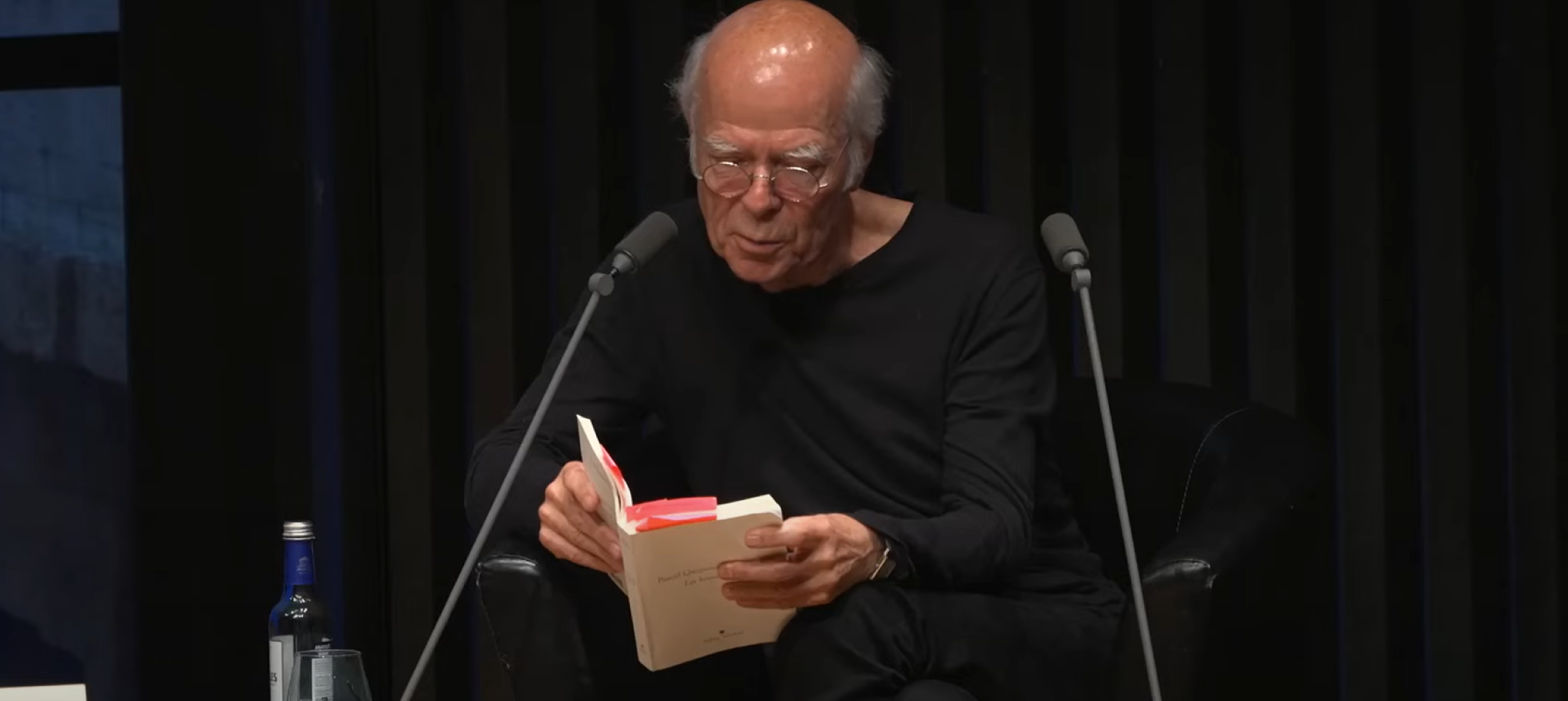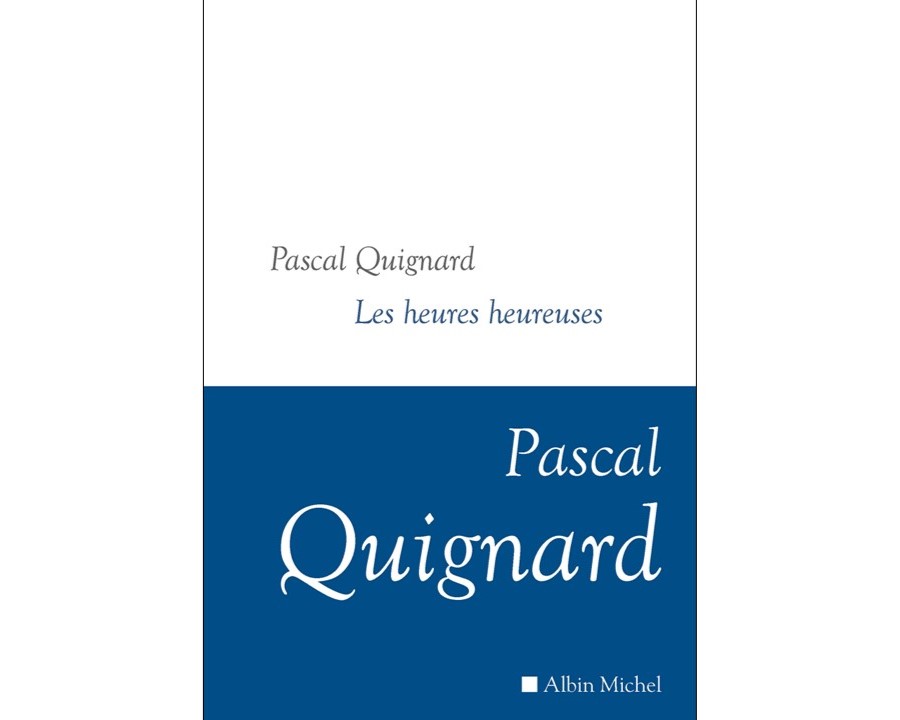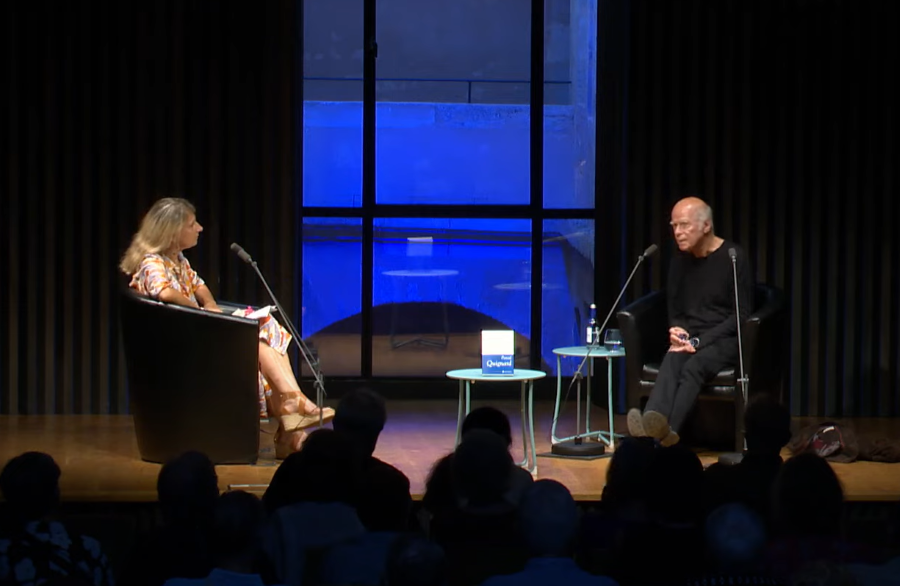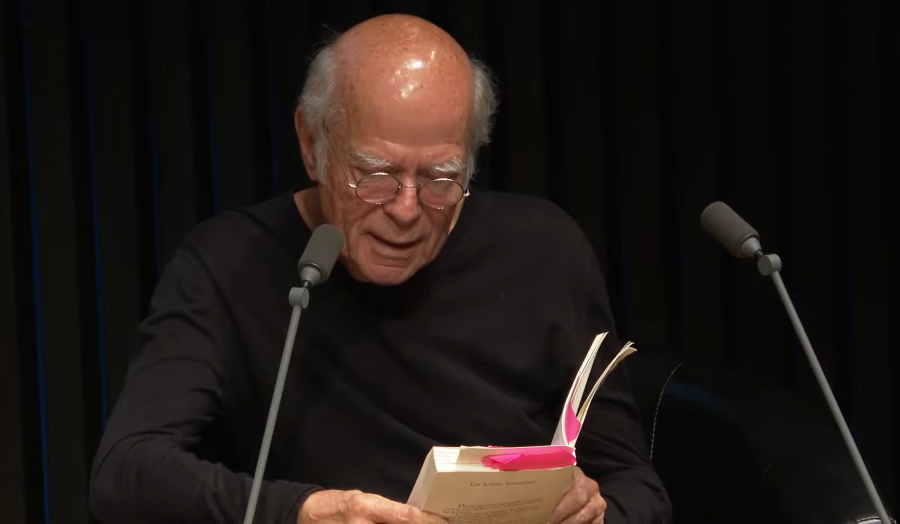
French writer Pascal Quignard explores 'The Happy Hours' at Bordeaux's Mollat Bookshop
Recently, French writer Pascal Quignard engaged with his audience at the renowned Mollat bookshop in Bordeaux, in southwestern France, to discuss his book 'Les Heures heureuses', or ‘The Happy Hours’, in English — the 12th volume from his 'Last Kingdom’ series.
 The Happy Hours by Pascal Quignard
The Happy Hours by Pascal Quignard The 'Last Kingdom' series constitutes a philosophical odyssey wherein Quignard delves into
all the possible faces of time
or, as he elegantly phrases it in his native tongue,
tous les visages possibles du temps.
Here, the term "last kingdom" refers to the earthly existence of humankind. Quignard provocatively contends that humans exist even before their earthly arrival, inhabiting a shadowy, aqueous realm of "yesteryear" within their mother's womb, a realm he poetically dubs the "first kingdom."
The inception of the 'Last Kingdom' series can be traced back to the 2002 publication of ‘The Roving Shadows,’ which garnered Quignard the prestigious Prix Goncourt. Since then, he has continued to craft and publish within this genre, which he proudly claims to have forged himself—an art form he characterises as the "non-genre," a canvas broad enough to encompass a letter, a poem, or even a menu. This stands in stark contrast to the novel, that bastion of fixed prose.
 Pascal Quignard at the Bordeaux's Mollat Bookshop © Mollat
Pascal Quignard at the Bordeaux's Mollat Bookshop © MollatIn his latest book, Quignard ruminates on the word "hour," a linguistically rich term in French that is embedded within both "happiness" or "bonheur" and its sombre counterpart, "unhappiness" or "malheur."
With his penchant for etymology, Quignard opines,
'Hour' defines the movement that presses time.
Expounding further, the erudite author underscores the notion of circulation:
This world is more circular than linear
he said. Seasons, too, ebb and flow in harmony with this circular cadence.
During the Mollat bookshop gathering, Quignard also delved into psychoanalysis, a recurrent reference point in his exploration of human consciousness. Psychoanalysis, he asserted, possesses the transformative power to "transfigure man" by offering an alternative narrative of human existence—a testament to how trauma can metamorphose into beauty.
 Pascal Quignard at the Bordeaux's Mollat Bookshop © Mollat
Pascal Quignard at the Bordeaux's Mollat Bookshop © MollatFor artists of various disciplines, 'Le Jadis' or 'the forgotten past' serves as a wellspring of inspiration. Musicians, painters, and writers alike revel in the prospect of
bringing back the things of which men were built.
While our world may be erected upon the scaffolding of language, Quignard ceaselessly evokes the silent, wordless genesis that draws its essence from the "lost" and "forgotten" fragments of our primordial existence in the "first kingdom," the genesis of time itself.
Furthermore, psychoanalysis, according to Quignard,
breaks the usual line of time
or, in his own evocative words,
casse la ligne habituelle du temps.
Indeed, the concept of time imbues every facet of the writer's discourse, rendering him a modern-day thinker.
For connoisseurs of eloquent prose steeped in philosophy and poetry, Pascal Quignard stands as an exemplary luminary—a living classic of contemporary literature.
Ever wondered where some of your favourite novels were created? Discover the cities that inspired your favourite novels.
